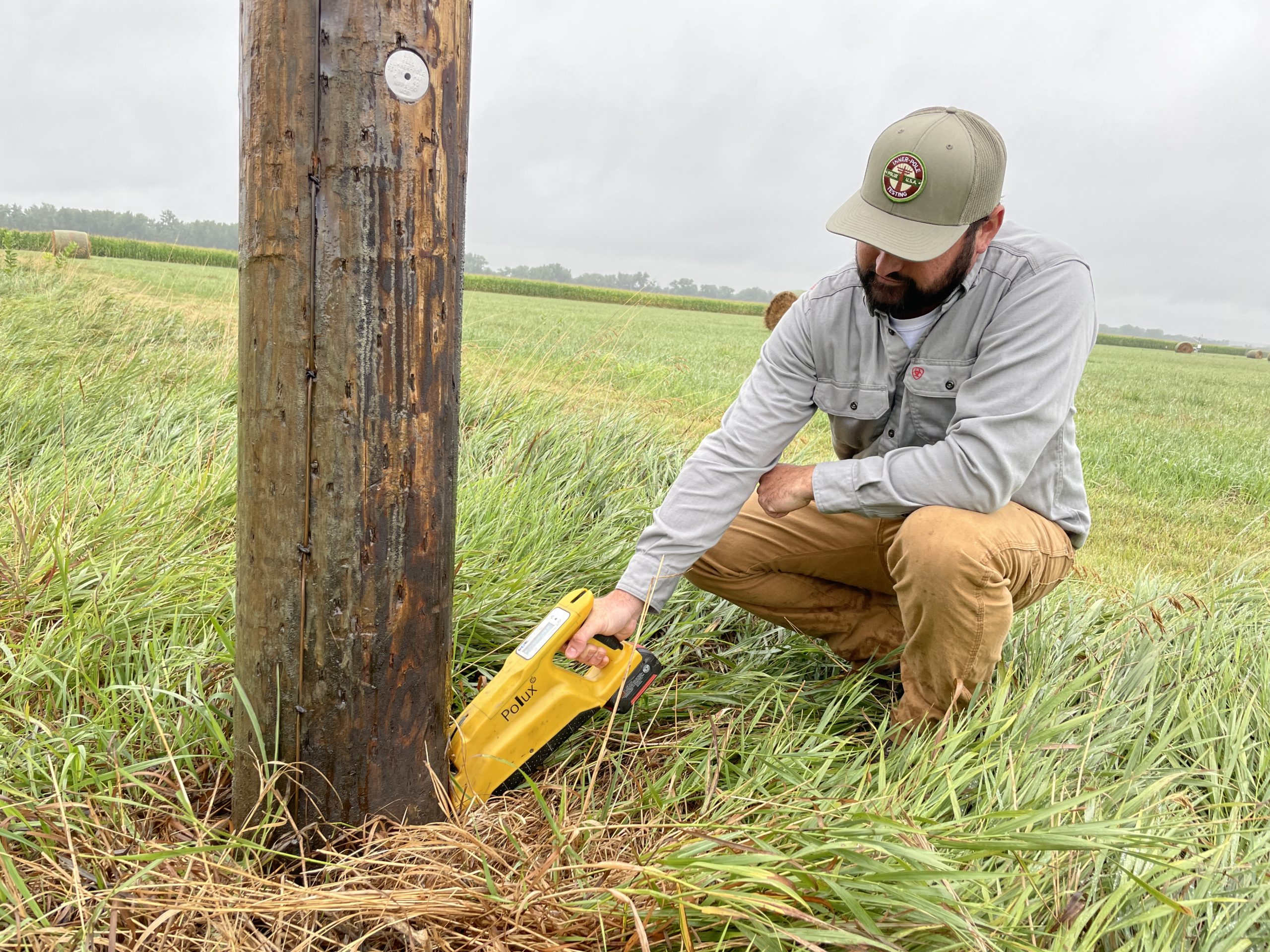
As a not-for-profit utility, Dawson PPD focuses on cost-effectively extending the life of its existing facilities while maintaining adequate levels of safety and reliability. Testing wooden poles helps the District ensure reliability and long life of its equipment, saving customers money in the long run.
Traditionally, pole testing involved a hammer for sounding, a shovel for digging around the base and drilling holes to test for decay. Today, Dawson PPD hires a contractor that uses a scientifically-based system called POLUX as a less-invasive and more accurate form of testing.
POLUX works by sending two, three inch long probes the size of an eight-penny nail into the base of the utility pole. This is the most vulnerable point where decay is most likely to occur on a pole. The probes measure resistance and moisture content of the pole. This information, along with the type of wood the pole is made of and how it was treated are run through a computer program with the pole’s GPS location recorded.
Typically, Dawson PPD uses a Southern Yellow Pine tree for its poles, which should have a resistance of 8,000 pounds per square inch when new. If the measurement falls below 50 percent of the recommended resistance, in this case 4,000 PSI, the pole is marked for replacement.
All of Dawson PPD’s poles are tested every 10 years on a rotating schedule with 10,000-11,000 poles tested annually.
OTHER NEWS
Dawson PPD awards $1,500 Utility Line Scholarship to Amherst student
(April 8, 2019) Dawson Public Power District has awarded Deric John a $1,500 Utility Line scholarship to pursue his degree. John, who resides in Miller, is a senior at Amherst High School. John plans to attend Northeast Community College in Norfolk in the fall of...
Dawson PPD awards $1,500 STEM Scholarship to Shelton student
April 8, 2019 Dawson Public Power District has awarded Luryn Hendrickson a $1,500 STEM scholarship to further her education. Hendrickson is a senior at Shelton Public Schools. In her essay, Hendrickson said that she plans to study architecture at the University of...
When the lights go out, they’ve got your back
April 8, 2019, is National Lineman Appreciation Day Much like Nebraska's tourism slogan, line work is honestly not for everyone. Long hours. Hot days. Cold nights. Potentially dangerous situations involving electricity. It is obvious that this job requires strength...

